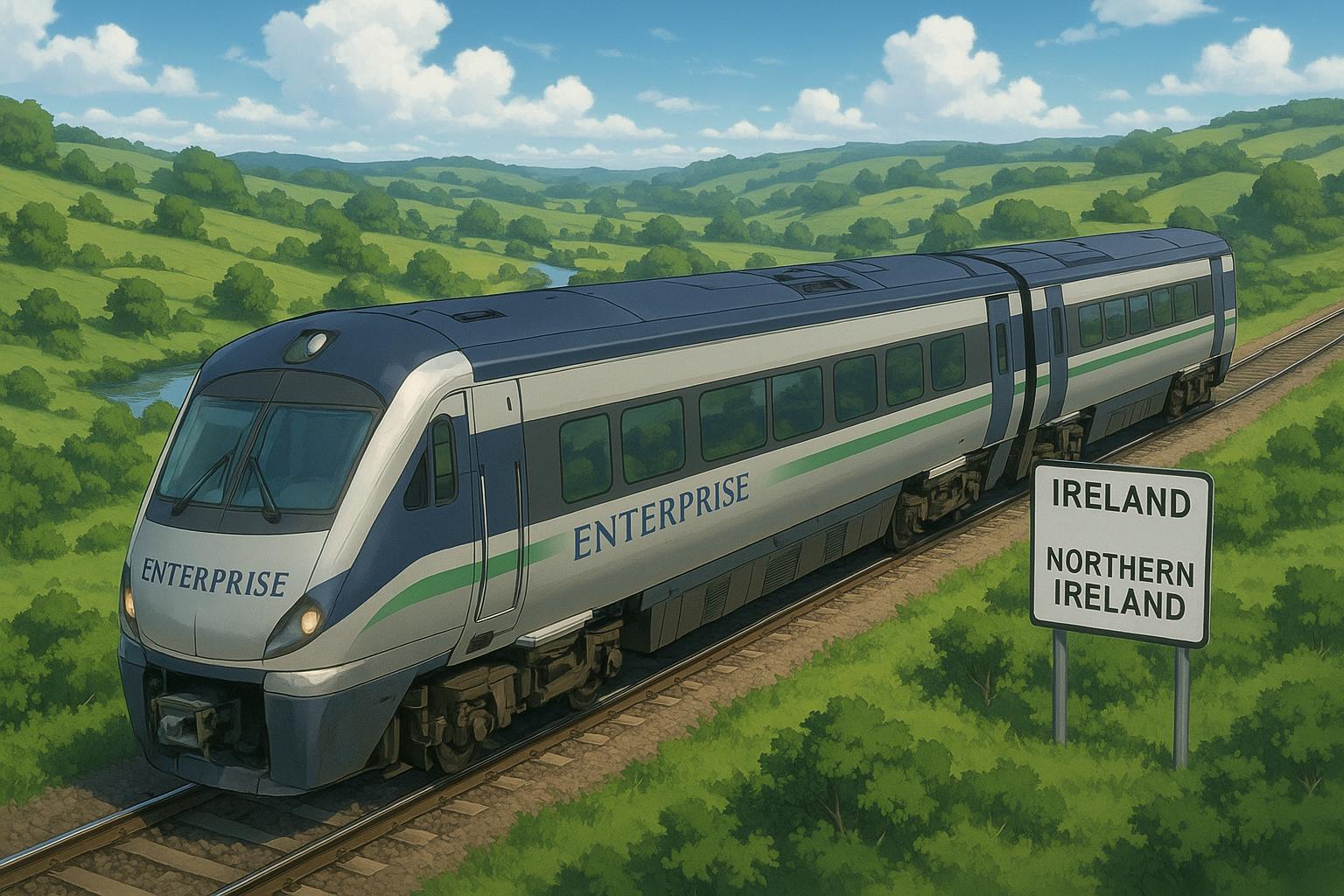In the context of the 25th anniversary of the Good Friday Agreement, the role of cross-border services, particularly the Enterprise train service, has been highlighted as a prime example of effective collaboration between Northern Ireland and the Republic of Ireland. This service has been lauded for breaking down barriers more profoundly than the various north-south bodies established under the Agreement itself. The comments, made by prominent figures including the DUP's Michelle McIlveen and Translink's Chief Executive Chris Conway, reflect a growing sentiment that practical initiatives are more impactful than political frameworks alone.
Initially contentious, the development of cross-border bodies in 1998 aimed to foster cooperation across several sectors, including health, education, and cultural exchange. Despite these efforts, a recent report from the Economic and Social Research Institute (ESRI) indicates that much of the potential for enhanced collaboration remains unfulfilled. The report calls for expanded initiatives that could further leverage the Agreement's foundational principles, suggesting that sectors like health and the environment are ripe for deeper integration. The report emphasises the benefits that could arise from a more ambitious approach to cooperation, reinforcing the idea that infrastructure projects like the Enterprise could serve as a model for other sectors.
Recent statistics show that an estimated 30,000 individuals cross the border daily for work, a clear indicator of the enhanced economic interdependence that has developed since the signing of the Good Friday Agreement. This trend not only underscores the agreement's success in fostering stability but also highlights a broader cultural shift where cross-border cooperation is seen as vital for both economic resilience and community cohesion.
However, this progress faces challenges, particularly in light of Brexit. The potential reintroduction of border checks has sparked criticism from leaders like Irish Taoiseach Leo Varadkar, who acknowledges that such measures could significantly undermine the spirit of the Good Friday Agreement. Varadkar's concerns echo a growing consensus that maintaining free movement across the border is essential for preserving the peace and economic prosperity achieved over the past two decades.
Amid these uncertainties, the Joint Committee on the Implementation of the Good Friday Agreement has reaffirmed its commitment to developing cross-border health and social services. This dedication sends a strong message about the importance of collaboration in tackling issues that impact communities on both sides of the border, especially as new challenges arise in the post-Brexit landscape.
In summary, while the Enterprise service represents a significant step forward in cross-border cooperation, broader efforts must be made to realise the full potential of the Good Friday Agreement. As debates continue around the implications of Brexit, the call for enhanced, practical cooperation becomes increasingly vital to maintain the progress that has been made.
📌 Reference Map:
- Paragraph 1 – [1], [4]
- Paragraph 2 – [1], [2], [5]
- Paragraph 3 – [3], [6]
- Paragraph 4 – [5], [7]
- Paragraph 5 – [1], [7]
Source: Noah Wire Services
